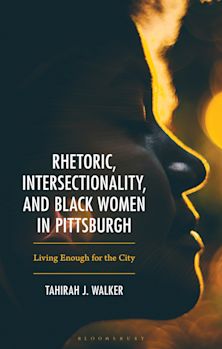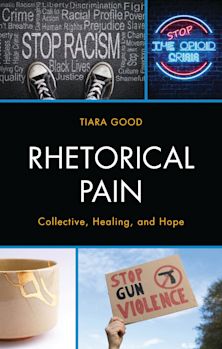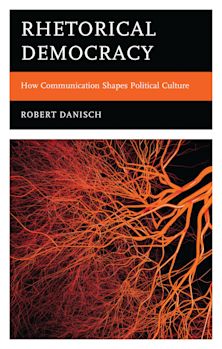- Home
- ACADEMIC
- Communication Studies
- Rhetoric
- Rhetoric of the Opioid Epidemic
Rhetoric of the Opioid Epidemic
Deaths of Despair in America
Rhetoric of the Opioid Epidemic
Deaths of Despair in America
You must sign in to add this item to your wishlist. Please sign in or create an account
Description
Rhetoric of the Opioid Epidemic demonstrates that framing the epidemic as a medical issue instead of an effect of moral failing holds more potential for solving the epidemic through medical treatment and reconnecting sufferers back to society. This rhetorical move separates the opioid epidemic from the criminal and immoral frames that were cast upon the crack epidemic and initial framing of the AIDS epidemic. Popular culture and governmental response case studies include: President Trump’s March 19, 2018 address to the nation, ODMAP produced by the Washington/Baltimore High Intensity Drug Trafficking in January 2017, news stories from national sources dating from 2015 to 2020 about the chronic pain management debate, two documentaries, Heroin(e) (2017) and One Nation Under Stress: Deaths of Despair in the United States (2019), and Ben is Back (2018).
Table of Contents
Introduction: Deaths of Despair and the Opioid Epidemic Now
Chapter 1 What is the Opioid Epidemic?: A Brief Summary
Chapter 2 Tattered social fabric and dashed expectations: Documenting the Epidemic through Documentary Films
Chapter 3 “Ben is Back:” Rhetoric of Mothers in the Opioid Epidemic
Chapter 4 Defining Trump's America through Crisis: Remarks on Combatting the Opioid Crisis
Chapter 5 Mapping the Epidemic: ODMAP and the boundaries of response
Chapter 6 A Brief Analysis and Sample of the Chronic Pain Management Debate in the United States
Conclusion: A Very American Epidemic: Rhetoric of the Opioid Epidemic
Product details
| Published | 05 Nov 2021 |
|---|---|
| Format | Ebook (Epub & Mobi) |
| Edition | 1st |
| Extent | 150 |
| ISBN | 9781793626202 |
| Imprint | Lexington Books |
| Series | Bloomsbury Studies in Contemporary Rhetoric |
| Publisher | Bloomsbury Publishing |
About the contributors
Reviews
-
The opioid epidemic is often framed as either a legal or public health problem. In this insightful work, Tiara Good approaches it as a rhetorical problem and examines the ways opioid addiction has become meaningful in American culture. Moving confidently across cinematic, political, governmental, and press accounts, Good explores the processes through which we have come to talk and feel about this public health crisis and the way these discourses have shaped our policies and practices.
Kendall Phillips, Syracuse University
-
This is a smart and deeply humane book. It’s essential reading for anyone interested in the opioid epidemic—but even more broadly, Prof. Good’s insights should jump start a conversation, in academic and beyond, about how our rhetoric can create and compound the suffering of people caught up in any epidemic. At its best, rhetorical scholarship seeks to make the world a better place, and this is rhetorical scholarship at its best.
Jeremy David Engels, Penn State University
-
Much has been written about the opioid and ‘deaths of despair’ epidemics from the vantage point of the two being unrelated, albeit co-occurring, tragedies. However, Dr. Good explores the two as a syndemic with common underlying causes rooted in poverty, inequality, trauma, hopelessness, and opportunistic greed. This is a must-read for medical professionals, legislators, and the countless families harmed by the co-occurring crises.
Paul Coelho, Medical Director of Salem Health Pain Clinic

ONLINE RESOURCES
Bloomsbury Collections
This book is available on Bloomsbury Collections where your library has access.



































